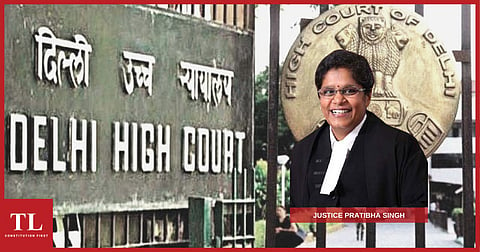

THE Delhi High Court has directed its Registrar General to examine those cases in family courts where no orders have been passed on the first application for mutual divorce despite the filing of statements by the parties.
It called for a report on the matter on July 1.
The order came to be passed by a single-judge bench of Justice Pratibha Singh on a petition filed by a woman, Kavita Malik, complaining that since the family court did not pass order on the first application of mutual divorce, she and her husband were being forced to continue with their marriage.
"All future plans of the parties have been put on hold and these facts have not been appreciated by the family court which has acted with complete callousness in not recording the order on the first motion", the petitioner said.
The high court called for the record from the lower court and found the order passed on July 20, 2020, by the family court specifically noted that the joint statement of the petitioners had been recorded.
Considering that the physical copy of their statement was already signed, the court said it was "completely inexplicable" as to why the order on the first application was not passed and asked if there was any formality to be completed by the parties.
Referring to the Supreme Court's decision in Amardeep Singh vs Harveen Kaur, the high court said it was clear that the six-month cooling-off period under Section 13B of the Hindu Marriage Act could be waived by the court under special circumstances.
Noting the facts of the present case – the parties have been living apart from 2018 and have also finally settled their disputes – the court said there was no reason as to why the family court did not pass orders on the first motion after recording the statements of the parties and after the physically signed copy had been placed on record.
"Simply adjourning the matter on the said date i.e., 20th July 2020, without passing orders on the first motion has resulted in turning the clock back for the petitioner", the high court said, adding that the parties could not be put to such grave inconvenience due to the actions of the family court which had failed to pass orders, especially given that the divorce, in this case, was one of mutual consent.
Directing the family court to pass an order on the first application of mutual divorce, it also asked the Registrar General to look into similar cases where no orders had been passed despite the filing of statements by the parties.
The petitioner was represented by advocate Juhi Arora.